Volodymyr Zelenskiy makes the announcement hours after Russia declares annexation of Kherson, Zaporizhzhia, Donetsk and Luhansk

Live feed
From 16m ago
Ukraine formally applies for Nato membership
Ukraine has formally submitted its application to join the Nato alliance, its president, Volodymyr Zelenskiy, has announced.
More to follow…
Key events
Britain has summoned the Russian ambassador to protest Moscow’s annexation of more than 15% of Ukraine, the UK foreign office said.
Ukraine formally applies for Nato membership
Ukraine has formally submitted its application to join the Nato alliance, its president, Volodymyr Zelenskiy, has announced.
More to follow…
Poland’s foreign ministry has condemned the signature of treaties by Vladimir Putin to annex four Ukrainian regions, and called for an increase in military support for Kyiv and more sanctions.
In a statement, the ministry said:
The Ministry of Foreign Affairs condemns in the strongest terms the illegal acts of ‘recognition of independence’ and ‘incorporation’ into the Russian Federation of parts of Ukraine’s regions of Kherson, Donetsk, Luhansk and Zaporizhzhia.
The Ukrainian' President’s office has issued a briefing statement after today’s national security council meeting. It reads in part:
The members of the National Security Council discussed the issue of another attempt to annex the territory of Ukraine and the escalation of armed aggression by the Russian Federation. The participants of the meeting discussed ways of countering the attempts of the aggressor country to annex Ukrainian territories.
It said that the group discussed the “fake referendums” and also discussed “the collective security of Ukraine and the Euro-Atlantic space”, concluding:
The measures that must be taken to ensure the collective security of the Euro-Atlantic space and Ukraine were discussed. In particular, this is the strengthening and expansion of the international coalition in support of Ukraine, the increase of military and technical assistance to our country, the strengthening of sanctions pressure on Russia, the implementation of proposals to guarantee security in the international arena, the activation of the strategy of nuclear deterrence of Russia by the countries of the Euro-Atlantic space, as well as countering hybrid threats caused by the aggressor country.
There is a considerable visible contrast between the scenes today in Moscow celebrating the annexation of Zaporizhzhia, and the scenes in Zaporizhzhia itself, where dozens were killed this morning after a Russian strike on a civilian convoy.
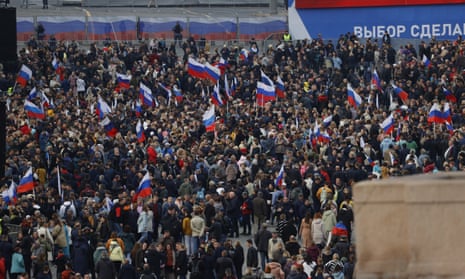
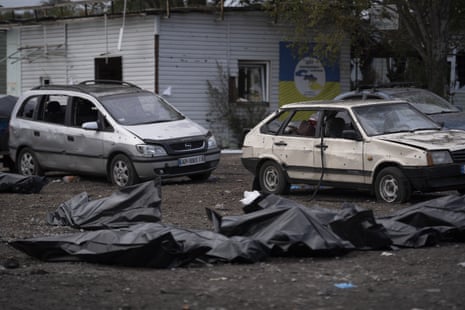
Here is a still from the end of the signing ceremony, which shows Russian President Vladimir Putin sharing a group handshake with the Russian-imposed leaders of the four occupied regions of Ukraine that have been absorbed into the Russian Federation after today’s annexation. From left to right they are Vladimir Saldo of Kherson, Yevhen Balytskyi of Zaporizhzhia, Putin, Denis Pushilin of Donetsk and Leonid Pasechnik of Luhansk.

My colleague Isobel Koshiw reports that Ukrainian president’s office did not watch Putin’s speech, but that Volodymyr Zelenskiy will react later in a video address.
The president’s office did not watch Putin’s speech. The national security committee meeting is underway and Zelenskiy will react in a video address - Zelenskiy’s team tell Ukraine’s Suspline.
— Isobel Koshiw (@IKoshiw) September 30, 2022
Mykhailo Podolyak, adviser to the head of the office of Volodymyr Zelenskiy, has told Russia that it will need to ask Kyiv for permission for Russian troops to exit the Lyman encirclement, provided “of course, those in Kremlin are concerned with their soldiers”.
Podolyak’s tweet also references the battle of Ilovaisk in 2014. In that event, Ukrainian soldiers who had negotiated safe passage out of an encirclement by pro-Russian forces were fired upon, resulting in, according to official figures, 366 Ukrainian soldiers and volunteer fighters being killed, 429 getting wounded, 128 taken prisoner, and 158 left missing in action.
8 years ago, ru-military surrounded our near Ilovaisk. Our guys agreed to surrender without weapons. But Russia broke its word. The column was shot. Today RF will have to ask for an exit from Lyman. Only if, of course, those in Kremlin are concerned with their soldiers.
— Михайло Подоляк (@Podolyak_M) September 30, 2022
EU executive calls for tighter visa restrictions on Russians
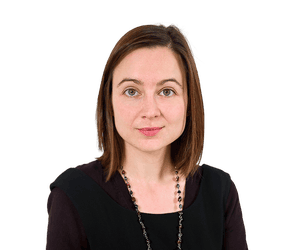
Jennifer Rankin reports for the Guardian from Brussels:
The EU executive has called for tighter restrictions on issuing short-stay visas to Russians in response to the Kremlin’s escalation of the war against Ukraine and partial mobilisation order.
Announcing new guidelines on Friday, Ylva Johansson, the EU commissioner for home affairs, told reporters that EU member states needed to carry out stricter checks when issuing short-stay visas for the bloc’s border-free travel zone.
“We should be very, very restrictive in issuing these kind of [Schengen] visas in the security situation we are in,” she said, citing Vladimir Putin’s nuclear threats, the illegal annexation of four Ukrainian regions, the Russian president’s mobilisation order and what she called the “attacks” on Nordstream pipelines. “There is an escalation of the security threat. That is why we are presenting new guidelines,” she said.
In reality, it has already become harder for Russians to enter the EU since a ban on direct flights to and from Russia was introduced soon after the invasion. More recently, countries sharing a land border with Russia – Poland, Finland and the Baltic states – have stopped issuing Russian tourist visas and are denying entry to those seeking to travel for leisure.
The granting of visas for Russians has moved up the agenda, since Putin’s partial mobilisation order prompted large numbers of men and their families to flee Russia, although more appeared to have left for non-EU neighbouring states where access is easier.
Johansson insisted it remained possible for Russians to apply for asylum, but said they would not get special treatment. “This is not a time to give easier access than for other citizens that also might want to apply for asylum in the European Union.”
She also said Russians should not be allowed to apply for a Schengen visa from a third country, restricting onward travel options for those who fled to former Soviet states such as Georgia and Kazakhstan. Exceptions, however, are possible for journalists, dissidents, people with family ties in an EU country and those seeking a humanitarian visa.
In September, the EU had an additional 20,000 Russian arrivals compared with the previous year, 190,000 people rather than 170,000 in 2021. “The numbers of people that have entered is more than usual but it’s not that high,” Johansson said, adding that there had been very few applications or asylum from Russians.
Our correspondent Shaun Walker has suggested that Putin’s speech today was something of a greatest hits re-tread of the Russian president’s favourite themes.
If you were playing a "classic Putin phrases" drinking game you'd be in intensive care by this point.
— Shaun Walker (@shaunwalker7) September 30, 2022
He also suggested that Putin’s repeated complaints about the colonialism of the west struck an odd note when he himself was in the middle of annexing territory from a neighbouring sovereign state.
Putin, who is literally announcing a land-grab, has complained about his "neocolonial" foes about ten times so far.
— Shaun Walker (@shaunwalker7) September 30, 2022
The grand ceremony in Moscow is at some contrast to events on the ground today, where Ukrainian forces appear to have nearly completely encircled Russian troops in a pocket around Lyman in Donetsk.
Reuters reports the move leaves Ukrainian forces with an open path to seize more territory in Luhansk and Donetsk provinces, captured earlier in some of the war’s bitterest fighting.
The Russian-installed leader in Donetsk has acknowledged troops had lost full control of the villages of Yampil and Dobryshev, north and east of the city of Lyman.
The Ukrainian army was “trying at all costs to spoil our historic events”, Denis Pushilin said. “This is very unpleasant news, but we must look soberly at the situation and draw conclusions from our mistakes.”
Ukraine’s military said it was withholding details of the situation on the battlefield until the area was stabilised, but that an operation was under way to encircle Russian forces.
“All the approaches and logistic routes of the enemy, through which they delivered ammunition and manpower, are in fact under fire control” of the Ukrainian army, said Serhii Cherevatyi, a spokesperson for Ukrainian troops in the east.
Putin annexes four regions of Ukraine in major escalation of Russia’s war
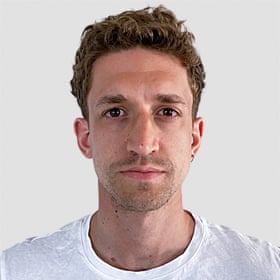
Vladimir Putin has signed “accession treaties” formalising Russia’s illegal annexation of four occupied regions in Ukraine, marking the largest forcible takeover of territory in Europe since the second world war.
The signing ceremony, held in defiance of international law, took place in the Grand Kremlin Palace in the presence of the country’s political elites, and comes on the heels of Kremlin-orchestrated fake referendums in the four Ukrainian regions – Kherson, Zaporizhzhia, Luhansk and Donetsk.
Putin kicked off the ceremony with a lengthy, combative and angry speech in which the Russian leader issued new nuclear threats, promising to “protect” the newly annexed lands “with all the forces and means at our disposal”.
“The people have made their choice. An unequivocal choice … This is the will of millions of people,” Putin said, adding that the citizens of the four occupied regions will be part of Russia “for ever”.
Shortly after, Putin signed the “accession treaties” on a podium alongside the Russian-installed heads of Zaporizhzhia, Kherson, Donetsk and Luhansk.
Taken together, Russia is annexing at least 40,000 sq miles of eastern and southern Ukraine, about 15% of Ukraine’s total area, equal to the size of Portugal or Serbia.
Vladimir Putin proclaims annexation of four Ukrainian regions“I urge the Kyiv regime to stop all hostilities, stop the war … and sit down for negotiations,” Putin said in his speech on Friday. Kyiv has indicated it will fight to reclaim all of its lands.
Read more of Pjotr Sauer’s report here: Putin annexes four regions of Ukraine in major escalation of Russia’s war
Orysia Lutsevych, who is head of the Ukraine forum at Chatham House, has said this about today’s annexation ceremony:
We should see Russia’s moves as a continued wave of annexation of neighbours’ territory. Russia’s level of control varies, from Abkhazia to Transnistria, to Crimea and Belarus. But this is all part of a pattern to enlarge Russia at the expense of others. Putin is on imperial mission to restore control over what he believes is ‘historic Russia’.
EU 'rejects and unequivocally condemns' annexation, and pledges continued support for Ukraine
President of the European Commission Ursula von der Leyen has immediately issued a rebuke to the Russian president, tweeting:
The illegal annexation proclaimed by Putin won’t change anything. All territories illegally occupied by Russian invaders are Ukrainian land and will always be part of this sovereign nation.
The illegal annexation proclaimed by Putin won’t change anything.
All territories illegally occupied by Russian invaders are Ukrainian land and will always be part of this sovereign nation.
— Ursula von der Leyen (@vonderleyen) September 30, 2022
A statement issued by the members of the European Council reads:
We firmly reject and unequivocally condemn the illegal annexation by Russia of Ukraine’s Donetsk, Luhansk, Zaporizhzhia and Kherson regions. By wilfully undermining the rules-based international order and blatantly violating the fundamental rights of Ukraine to independence, sovereignty and territorial integrity, core principles as enshrined in the UN charter and international law, Russia is putting global security at risk.
We do not and will never recognise the illegal ‘referenda’ that Russia has engineered as a pretext for this further violation of Ukraine’s independence, sovereignty and territorial integrity, nor their falsified and illegal results. We will never recognise this illegal annexation. These decisions are null and void and cannot produce any legal effect whatsoever. Crimea, Kherson, Zaporizhzhia, Donetsk and Luhansk are Ukraine. We call on all states and international organisations to unequivocally reject this illegal annexation.
We reiterate that the European Union firmly stands with Ukraine and will continue to provide strong economic, military, social and financial support to Ukraine for as long as it takes.
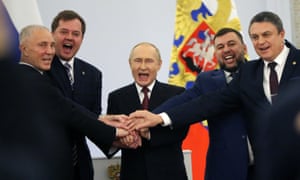
Putin annexes four regions of Ukraine in major escalation of Russia’s war
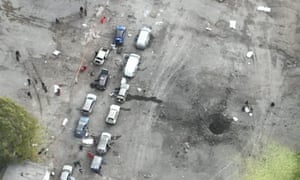
Dozens feared dead after Russian strike on civilian convoy near Zaporizhzhia

‘There’s no doubt it’s a war crime’: horror of missile strike on Ukrainian convoy
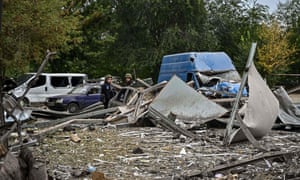
Russia-Ukraine war latest: what we know on day 219 of the invasion
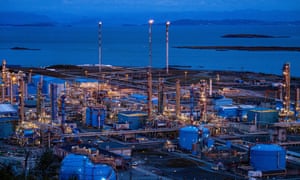
Nord Stream attacks highlight vulnerability of undersea pipelines in west
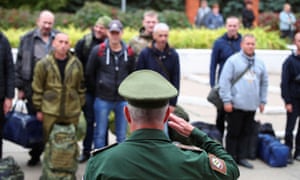
‘I will defend the country’: while some Russians flee draft, others head to war
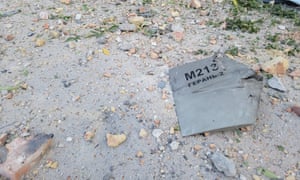
Russia escalating use of Iranian ‘kamikaze’ drones in Ukraine
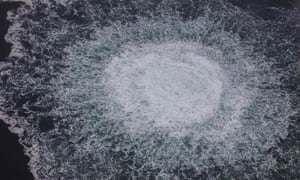
Sweden reports fourth Nord Stream pipeline leak


